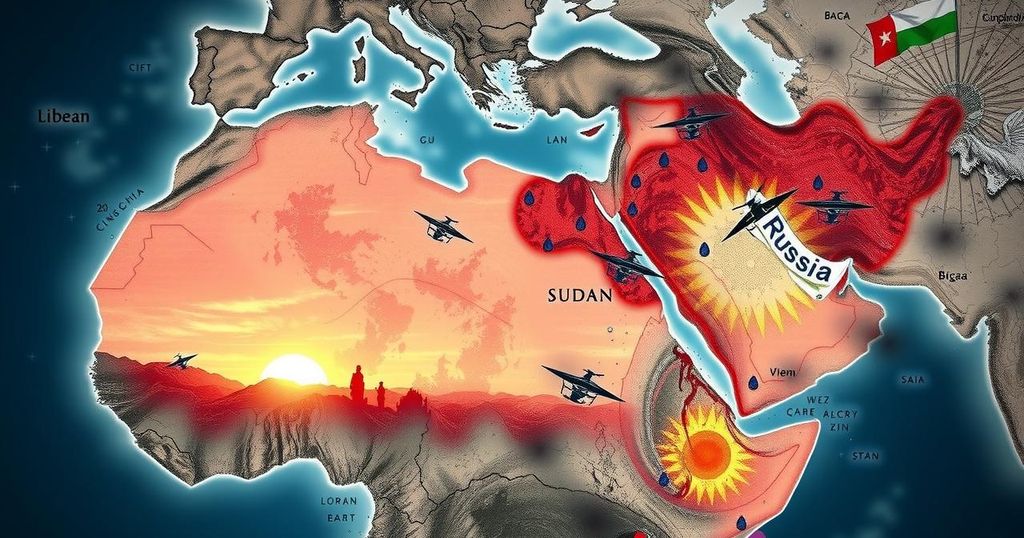As Russia faces the potential loss of its strategic bases in Syria, it is turning to Sudan and Libya to maintain its military influence in Africa and the Mediterranean. The ongoing conflict in Sudan presents opportunities for Russia, particularly through its involvement with the Wagner Group, while Libya’s governance issues continue to facilitate Russian ambitions for oil and influence. However, significant political challenges remain for sustaining operations in these regions without established bases.
Russia’s geopolitical aspirations face significant challenges with the potential loss of its strategic naval and air bases in Syria as Syrian rebels gain ground. The Kremlin’s naval base in Tartus and the Khmeimim airfield have been crucial for projecting power across the Mediterranean and into Africa. The Institute for the Study of War indicates that the fall of the Assad regime could thwart Russia’s objectives in these regions, threatening its influence in both the Mediterranean and the Red Sea. With the absence of effective military intervention capabilities beyond its borders, Russia is reevaluating its strategic military placements in Africa, particularly in war-torn nations such as Sudan and divided Libya.
In its quest for a new operational base amidst escalating tensions in Syria, Russia is looking towards Sudan, where discussions about establishing a naval base near Port Sudan have intensified. This collaboration, aimed at enhancing military capabilities in the Red Sea, could potentially compensate for the foreseeable loss of Tartus. Valuable resources, particularly Sudan’s gold, have fostered a lucrative arrangement for the Wagner Group, which has reportedly generated significant revenue through mining activities in the region.
Additionally, Russia’s involvement in Libya remains prominent, with the Africa Corps establishing military posts and supporting factions to secure access to the nation’s oil wealth. The ongoing strife in Libya presents an opportunity for Russia to capitalize on governance weaknesses to exert its influence. However, while Russian aspirations in Sudan and Libya may be substantial, the absence of formal military agreements and facilities in these countries presents significant hindrances to replicating the strategic benefits of the Tartus base.
The situation demonstrates a shift in Russian military strategy as it confronts losses in strategic footholds due to shifts in local power dynamics in Syria. With the fall of Assad’s regime, Russia faces a dire need to reassess its operations in Africa, where it has invested military resources through private military contractors like the Wagner Group. The Kremlin’s strategic interests hinge on securing access to resources and maintaining military influence in critical geographies like the Red Sea and the Mediterranean, especially as global tensions with NATO persist.
In conclusion, Russia’s military objectives face significant challenges as losing its naval base in Syria could critically impair its ambitions in both the Mediterranean and Africa. The search for alternatives in Sudan and Libya illustrates the Kremlin’s ongoing efforts to adapt to shifting geopolitical landscapes, though substantial obstacles remain. Both locations offer potential new bases, but the necessary political and military agreements to facilitate operational successes are yet to be established.
Original Source: www.intellinews.com






